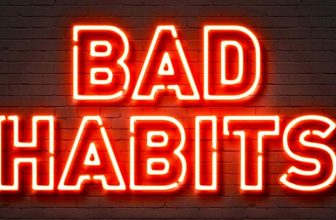
eLearning In Virginia, a state known for its rich history and vibrant culture, a revolution is quietly unfolding. This change isn’t about politics or social movements but about how people learn, especially in the healthcare sector. eLearning, a trend once seen as a mere supplement to traditional education, is now at the forefront of academic innovation.
In the healthcare industry, where continuous learning and upskilling are crucial, eLearning has emerged as a beacon of progress. This shift is particularly evident in Virginia, where institutions like Marymount University are redefining healthcare education through online platforms.
Let’s explore the top benefits of this educational evolution, especially in the context of healthcare.
1. Flexibility in Learning
One of the most significant advantages of eLearning in healthcare is its flexibility. Traditional classroom settings often require rigid schedules, posing challenges for those balancing work, family, and studies.
eLearning dismantles these barriers, offering learners the liberty to study at their convenience. This flexibility is essential for healthcare professionals who often work irregular hours. Through eLearning, they can engage in continuous professional development without compromising their work or personal commitments.
2. Accessibility to Specialized Programs
For many aspiring healthcare professionals in the state, how to become an RN in Virginia or where to find specialized programs fitting their schedule are major concerns.
eLearning answers these questions by bringing specialized healthcare programs to students’ fingertips. Institutions like Marymount University leverage eLearning to offer one of the fastest online ABSN degree programs.
This accessibility breaks down geographical and logistical barriers, allowing more individuals to pursue their dreams in healthcare, regardless of their location or circumstances.
3. Cost-Effectiveness of eLearning
Apart from its academic merits, eLearning is also a cost-effective alternative to traditional education. It significantly reduces or eliminates expenses related to commuting, housing, and physical learning materials.
In the healthcare industry, where education can be a substantial investment, the affordability of eLearning makes it an attractive option. It opens doors for more individuals to enter the field without the burden of excessive debt, democratizing access to healthcare education.
4. Up-to-date and Relevant Content
The healthcare industry is constantly evolving, with new treatments, technologies, and best practices emerging regularly. eLearning platforms excel in keeping course content up-to-date, a critical aspect of healthcare education.
Unlike traditional textbooks that can quickly become outdated, online courses can be updated promptly as new information and practices emerge. This ensures that healthcare professionals are learning the most current and relevant information, keeping them at the forefront of their field.
5. Interactive eLearning Experience
Healthcare is a field where practical skills are as important as theoretical knowledge. eLearning platforms address this need by offering interactive learning experiences.
Through virtual simulations, video tutorials, and interactive modules, healthcare students can gain practical insights and skills in a virtual environment. This interactivity makes the learning experience more engaging and effective, preparing students for real-world scenarios they will encounter in their professional lives.
6. Self-Paced Learning
The healthcare industry often demands a deep understanding of complex concepts, and eLearning accommodates this with self-paced learning. This approach allows learners to digest challenging materials at a speed and on a timeline that suits their individual learning style.
For instance, a nursing student grappling with advanced pharmacology can take the time needed to fully understand the subject without feeling rushed by a traditional class schedule. The ability to study at one’s own pace leads to a more profound and long-lasting comprehension of the material, which is essential in a field where knowledge directly impacts patient care.
7. Enhanced Digital Literacy
In today’s technology-driven world, digital literacy is as crucial as medical expertise in the healthcare sector. eLearning inherently boosts digital literacy among its users. As healthcare professionals navigate various online learning platforms and tools, they simultaneously enhance their proficiency in digital communication and data management.
This skill is invaluable in a healthcare environment increasingly reliant on electronic health records, telemedicine, and other digital healthcare tools. By integrating eLearning into their education, healthcare professionals are better prepared to adapt to the digital evolution of their field.
8. Global eLearning Networking Opportunities
One of the more understated benefits of eLearning in healthcare is the opportunity for global networking. Online courses often bring together students and professionals from around the world, creating a diverse learning community.
This global perspective is invaluable in healthcare, a field that benefits greatly from cross-cultural insights and shared knowledge. Through forums, online discussions, and collaborative projects, learners can connect with peers and experts globally, exchanging ideas, practices, and experiences.
This networking can lead to collaborative research, international job opportunities, and a broader understanding of global health challenges and solutions.
Summary
The integration of eLearning into the healthcare industry represents a significant leap forward in educational methodology. Its benefits extend far beyond convenience and cost-effectiveness, deeply influencing the quality of healthcare education and, by extension, healthcare delivery. Through self-paced learning, eLearning accommodates the diverse needs of students, ensuring that future healthcare professionals have a deep and lasting understanding of essential concepts.
The enhancement of digital literacy prepares them for the increasingly digital nature of modern healthcare, while global networking opportunities foster a broader perspective on health and wellness.
As we move forward, the role of eLearning in healthcare education will likely continue to grow and evolve. Its benefits make it an invaluable tool for training the next generation of healthcare professionals. With its ability to adapt to the needs of students, keep pace with technological advancements, and connect learners from around the globe, eLearning is not just a trend but an essential component of modern healthcare education.
As more institutions, like those in Virginia, embrace this mode of learning, we can expect to see a more efficient, accessible, and progressive healthcare education system, ultimately leading to better patient care and health outcomes.









